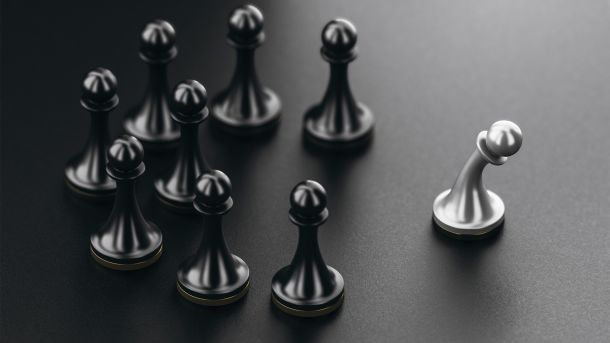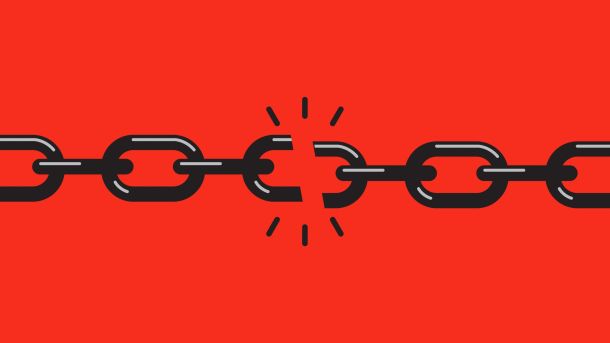News Archive
Jun 15, 2007
Refutation of the Aḥbāsh
A Refutation of the Habashīs (Ahbash) by the Muhaddith of this era, al-Imām Muḥammad Nāsir ud-Dīn Ṣāliḥ
Arabic Audio: Silsilah Hudā wa-Nūr No.695:
Questioner: With the Name of Allāh, the Most Gracious, the Most Merciful. O our Shaykh, some of the Ahbash (plural of Habashī) from the pupils of ʿAbdullāh al-Habashī took to the addressing to some of the women of this country in the way of fitrah. They addressed them for example by saying, “Who created al-makān?” So the women they answer, “Allāh.” So then the Habashī said, “So, is it possible that Allāh the Creator of this makān will be inside th…
Jun 15, 2007
Fatāwá of the Standing Committee Concerning Ruling By Other Than What Allāh Revealed
As for the one who rules by other than what Allāh revealed, and he believes that he is sinning, but he rules by other than what Allāh revealed, due to bribes paid to him, or other than that, or enmity to his constituents, or closeness to them, or their friendship with him, or similar to that, then this cannot be major disbelief.
Al-ʿAllāmah ʿAbd al-ʿAzīz ibn ʿAbdullāh ibn Bāz[1]: Fatwá (no. 5226):
[Q]: When is takfīr (declaring a Muslim to be a disbeliever) permissible, and when is it not permissible? What type of takfīr is mentioned in the Statement of Al…
Jun 15, 2007
Ruling by Other Than the Law of Allāh
The following is taken from the Shaykh’s concluding remarks to the ḥadīth of ʿAdī ibn Ḥātim that he heard the Messenger of Allāh (ﷺ) reciting the verse:
اتَّخَذُوا أَحْبَارَهُمْ وَرُهْبَانَهُمْ أَرْبَابًا مِّن دُونِ اللَّهِ ﴿٣١﴾
“They (the Jews and Christians) took their rabbis and monks to be their lords besides Allāh.”
[al-Tawbah, 9:31]
Upon which I said, “indeed we did not worship them.” [The Prophet (ﷺ)] said, “did they not make unlawful that which Allāh made lawful and so you too did the same? [Did they not] make lawful what Allāh made unlawful and so you too did the same?” I replied…
Jun 15, 2007
Abū al-Ḥasan al-Maʿribī and the Issue of Maligning the Companions
Abū al-Ḥasan has seen these words of Shaykh al-Islām and I have alerted him of this danger but despite this, he doubted, was obstinate, and insisted for years, then displayed recantation at a time when there is doubt about the sincerity of his retraction, the cause of which he has not clarified and during which there has been no apparent remorse over his contravention and obstinacy?
The aforementioned essay is the first in a highly beneficial and systematically structured series of refutations upon the manhaj of Abū al-Ḥasan al-Miṣrī, then al-Maʿribī. The refutations have been compiled from…
Jun 15, 2007
Tawḥīd al-Ḥākimiyyah Is an Innovation
I say that I believe in the ḥākimiyyah of Allāh alone and I believe in the comprehensiveness of this ḥākimiyyah and that is obligatory upon the individual and the groups and the rulers and the callers to submit to it.
An Introduction to the Fitnah
Al-Ḥāfiẓ Ibn Ḥajar said:
“Al-Mu’allib said: ‘Desire for leadership is a cause for people fighting each other to the point that they shed blood and make wealth and private parts lawful, and therefore great corruption occurs in the land. Then the reason for regret is that he may be killed, deposed or die and then regret having entered into it in the…
Jun 15, 2007
The Refutation of the Habashis
A Refutation of the Habashīs (Ahbash) by the Muhaddith of this era, al-Imām Muḥammad Nāsir ud-Dīn Ṣāliḥ
Arabic Audio: Silsilah Hudā wa-Nūr No.695:
Questioner: With the Name of Allāh, the Most Gracious, the Most Merciful. O our Shaykh, some of the Ahbash (plural of Habashī) from the pupils of ʿAbdullāh al-Habashī took to the addressing to some of the women of this country in the way of fitrah. They addressed them for example by saying, “Who created al-makān?” So the women they answer, “Allāh.” So then the Habashī said, “So, is it possible that Allāh the Creator of this makān will be inside…
Jun 14, 2007
A Principle Concerning Unity and Splitting
Allāh said:
وَمَا اخْتَلَفَ الَّذِينَ أُوتُوا الْكِتَابَ إِلَّا مِن بَعْدِ مَا جَاءَهُمُ الْعِلْمُ بَغْيًا بَيْنَهُمْ ۗ ﴿١٩﴾
“Those who were given the Scriptures did not differ except out of mutual jealousy and hatred (bagyan) after knowledge had come to them.”
[Ālī ʿImrān, 3:19]
Informing that their differing arose after the coming of knowledge that made clear to them as to what they should steer clear of – for indeed Allāh does not let a people become misguided after He guided them except after telling them what they should steer clear of. And informing that they differed only due to the…
Jun 14, 2007
The Truth about ʿAbd al-Hādī and Suhayb Ḥasan
From it the statement of Suhayb Ḥasan that ‘He (Shaykh Rabīʿ) is my contemporary’ and that ‘al-jarḥ wa-al-taʿdīl is finished’ and from ʿAbd al-Hādī, the clear praise of Mawdūdī as he mentioned him as ‘a great, great Scholar’. The tape also exposes the heinous activities of a masjid that houses such people, showing their allegiance to the kufār before the Salafīs wa-Allāhu mustaʿān. So let those who wish to know the haqq about these two see the proofs and accept them. There are many who say these types of refutations only bread fitan and disunity amongst the ummah, rather if it were not for…








